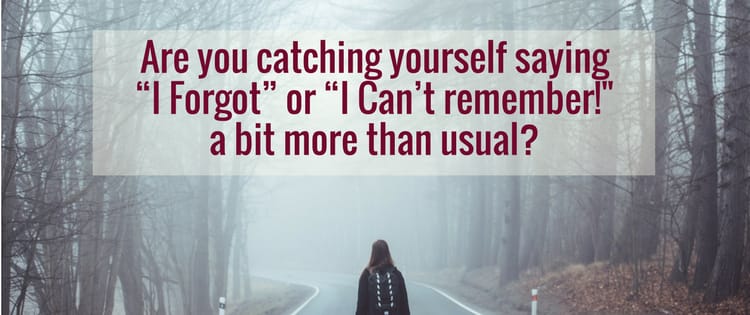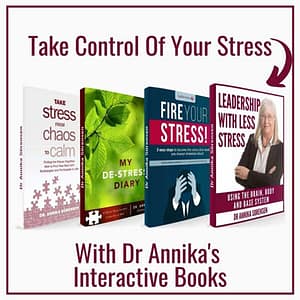
Do you find yourself forgetting things every now and then saying to yourself “I can’t remember, I don’t know where I put it. I just don’t remember.”
Well, forgetting things every now and then is normal because there is such an inflow of information and some of the stuff doesn’t really get into your brain properly. And there is such an overflow of it and if we don’t internalize it, it’s not there, but that is very normal. I’m sure you’ve been in that situation tons of times because most people have.
It’s like when you forget your key, forget where you put things, forget your purse, your papers or whatever. The list can be long and when you’re stressed out that’s when your brain gets overloaded and this is what happens. It shuts down and you just don’t remember things, it’s perfectly normal. Normally it is just for a day or two or short periods of time and then we’re normal again and we’re back on track. It’s frustrating but it doesn’t rule your life.
But then one day it might be more often and you feel “hmm I am forgetting all the time what’s happening here? Am I getting a disease.
Surprisingly many people believe that they are getting dementia when they start forgetting stuff more frequently. And of course if you are 65 years or older the likelihood is a little bit higher for you than if you are below 65 but I would say that most people forgetting things, also above 65, are just stressed out and you don’t need to worry unless of course it runs in the family in those rare cases. Of course I understand. Stress can seriously affect the memory because of overwhelm so your stress levels should be looked at first and foremost.
Let me tell you about Susan. She was an acquaintance in my network and one day she came to me at the network meeting because she had been asking some doctors if she was getting dementia. She was scared and so we talked a little and I discussed with her the pros and cons for different things that it could be. And very soon it was very obvious that this was just a case of bad overload. Because what she had been doing in the time before we talked was that she had been sleeping less and less. She told me that she had so much to do and she thought that if she could sleep less than she would have more time to work. That’s really what she thought. And boy did she fool herself.
Sleep is the time when the brain organizes new impressions. And we need it badly otherwise we get sick and there has been research recently where they had this I would say very interesting little study with toddlers. They played with the toddlers a special little game with a puppet and they made a little ritual. I mean these were kids that were so small they couldn’t really talk. So they were taught this little puppet game and then half the kids went for their ordinary nap in the afternoon. And the other half of the kids were kept awake.
Surprisingly afterwards when they presented things for the kids so that they could do the same with the puppet, all the ones that had had their nap remembered exactly what they had been doing previously. You could easily see that they knew what they had been doing and the other ones, the ones that have not had a nap, none of them knew what they had been doing with the puppet.
So it was very interesting that if you don’t sleep you don’t internalize new knowledge. There has been done the same kind of work with the grown up people where they go through a test and then half of them are getting a good night’s sleep. The other ones are not being given the chance to sleep well that night, and then the next morning they do the test again. You can see that the ones that have been sleeping they are the ones that remember and the ones without a good night’s sleep just don’t remember at all.
So Susan she learned her lesson. She did basically three things.
- Her Sleep Routine : The first one was to get her sleep in order because she understood the value when we talked about it.
- Taking Regular Breaks: The second thing she did was taking breaks every hour she set an alarm in her phone to ring every hour and she stood up walked around her desk, drank some water or coffee and eat some fruit. Depending on what time it was she could also do a lot of errands too just to get away from her work for a while.
- Getting Organized: The third thing was that she organized her stuff better on her desk and in her cupboards so that she wouldn’t let herself be able to forget things.
She organized it so now she says she fixed her sleep. She took her breaks and she organized her desk and she was so much happier. Afterwards she said; “OK I’m not stressed out anymore I feel this is so good.” And she was very very happy.
If you need help to organize yourself to get out of stress to figure out what to do and what’s best for you then I would love to help you personally. If you click this link we can you can book a 30 minute free call where we discuss your situation where we are and what help you need. And if you have friends or colleagues that would benefit from this information then feel free to share the link.
To your success!


